Cat years to human years is a concept that we use to compare a cat’s age to human years. It’s based on the fact that cats mature fastest in their first couple of years and then age more slowly. This conversion is just a rough estimate since things like health, genetics, care, and the cat’s environment can influence the aging process.
To work out your cat’s age compared with yours, take a look at the cat age chart later in this guide.
As already mentioned, cat years work based on the fact that your cat grows up faster than you in her first couple of years, aging more slowly thereafter. Cats can live for up to 18 years when given the correct care, a safe environment, and veterinary attention when necessary. However, some record-breaking felines have survived for much longer than that.
Keep reading to learn more about how cat years to human years work!
How Do I Convert Cat Years To Human Years?
Cat years to human years works like this:
- Your cat’s first year is considered the equivalent of 15 human years.
- Her second year adds nine further human years, so a two-year-old cat is around 24 human years.
- After that, every additional human year is four “cat years,” so a three-year-old cat would be 28 human years.
Kitten Stage (0-1 Years)
A cat is regarded as a kitten between birth and one year of age.
Young Adult Stage (1-6 Years)
Between one and six years, your kitty is considered to be a young adult.
Mature Adult Stage (7-10 Years)
Mature adult cats are aged from seven to ten years.
Senior Stage (11+ Years)
Once your feline friend reaches the grand old age of 11 and over, she’s classified as a senior kitty.
What Is The Average Lifespan Of Cats?
Cat average lifespan is around 13 to 14 years, although some live longer.
So, when it comes to how old do cats live, the answer depends on various influencing factors, such as genetics, the quality of care a cat receives during her life, and regular veterinary treatment.
If a cat is given optimum care and lives in a safe, indoor environment, she could live to over 18 years, which is considered a good age for a cat. I’ve had several kitties that were 19 years old when they passed away, so they obviously had a very good life!
What Factors Contribute To A Cat’s Lifespan?
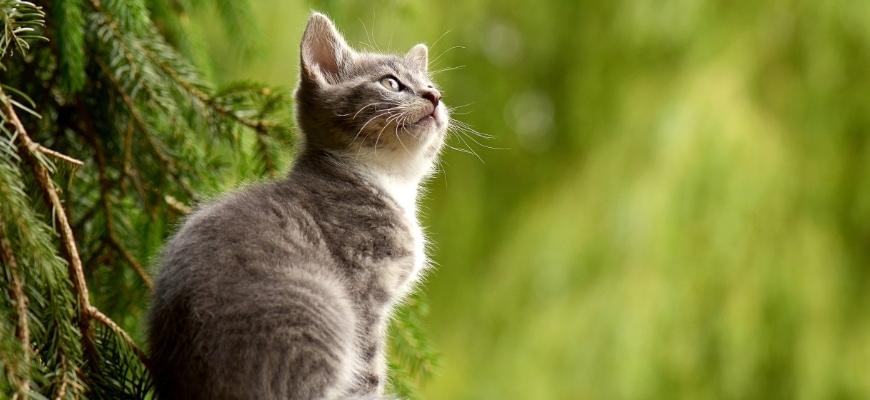
As already mentioned, many factors can contribute to a cat’s lifespan, such as genetics, the environment the cat lives in, and the veterinary treatment she’s received during her life.
Genetics
As with humans, a cat’s genetics are very important in determining how long a cat will live. That’s because some cats are more likely to suffer from certain diseases and health conditions that could shorten or prolong their life than others.
Diet
Feeding your cat a high-quality, balanced diet can reduce her risk of becoming obese, contracting diabetes, heart disease, and other potentially fatal health conditions, potentially leading to a longer, healthier life.
Environment
Indoor cats living in a safe, stimulating environment often have a longer lifespan than cats with access to the outdoors, which exposes them to traffic, predators, and diseases that can shorten their life expectancy.
Veterinary Care
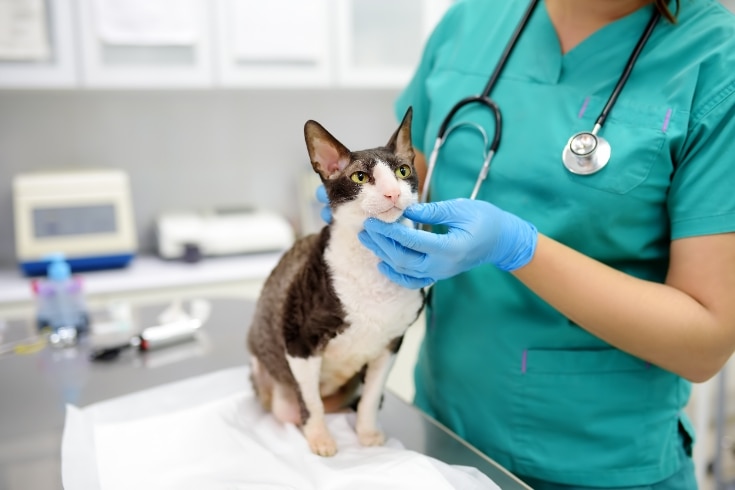
Cats receiving regular veterinary check-ups and treatments like vaccinations and parasite prevention usually live longer than cats that don’t.
Lifestyle
Regular play, mental stimulation, and moderate exercise can help keep a cat’s mind and body in optimal condition, potentially extending her lifespan.
Weight Management
Obesity can lead to several health problems in cats, including diabetes, heart disease, and joint issues, so maintaining a healthy weight can significantly prolong your furry friend’s life.
Dental Health
Oral disease and dental problems can cause serious health conditions if left undiagnosed and untreated. Regular dental check-ups and brushing your cat’s teeth daily can help to prevent those issues and help your cat to live longer.
Stress
Chronic stress or anxiety can seriously affect your cat’s health. You can prevent your cat from being stressed by providing her with a peaceful environment, plenty of hiding places, and using pheromone sprays.
Neutering/Spaying
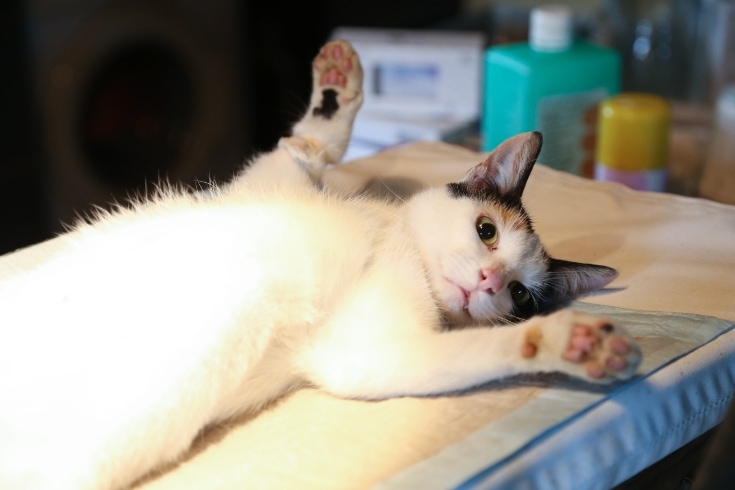
Having your cat desexed can reduce the risk of certain cancers that could dramatically shorten your cat’s life and prevent unwanted litters of kittens from ending up in shelters.
Parasite Control
Parasitic infestations, such as fleas, ticks, and worms, can cause a range of health issues and significantly impact a cat’s lifespan, so regular preventative treatments are essential.
Access To Fresh Water
Cats are prone to urinary tract infections, so keeping your pet well-hydrated is crucial for her health, so always ensure your cat has access to clean, fresh water.
Breed
Some cat breeds are more susceptible to specific health issues, while others are generally healthier. The following cat breeds typically enjoy long lifespans:
- Sphynx: 13 to 15 years
- Siamese: 12 to 20 years
- Manx: 12 to 15 years
- Ragdoll: 12 to 17 years
- Burmese: 15 to 16 years
- Maine Coon: 12 to 15 years
- Russian Blue: 15 to 20 years
- Balinese: 18 to 22 years
- Bombay: 15 to 20 years
- Siberian: 11 to 15 years
However, thanks to a phenomenon called “hybrid vigor,” common or garden moggies and mixed breeds can live the longest of all!
How Do You Tell A Cat’s Age?
To tell a cat’s age, take a look at your cat’s physical makeup, including her teeth, eyes, overall muscle tone, and body condition.
Here’s an overview of how to tell a cat’s age.
Teeth
Kittens generally have their primary teeth by the age of five weeks. By six months, a kitten usually has all her adult teeth. In young cats, the teeth are white and sharp, but as adults, there might be some yellowing, especially at the back. Once a cat reaches her senior years, she might have significant tartar buildup, a few missing teeth, and there could be some signs of dental disease.
Eyes
Young cats usually have bright eyes with no cloudiness. Adult kitties still have clear eyes, but there might be some clouding beginning, while seniors can have bluish, cloudy eyes thanks to a condition called nuclear sclerosis.
Coat And Fur
Kittens have soft, fine fur, while young cats boast a shiny, full, smooth coat. Adult felines might have a few gray hairs or thinning in places, much like humans, while seniors have less shiny fur and lots of grays.
Muscle Tone And Body Condition

A young cat has firm, well-defined muscles, whereas adults might carry a bit more weight but are still quite muscular. Senior kitties often have decreased muscle tone or definition, some loose skin, and a telltale drooping belly.
Behavior And Playfulness
As a cat ages, she loses interest in playing games and might prefer to spend more time indoors, chilling out. Old cats typically enjoy sleeping their days away, perhaps enjoying a mentally stimulating puzzle game.
Health And Mobility
Young cats are usually full of vim and vigor and love climbing, jumping, and chasing toys and prey animals. As cats age, joint issues and arthritis can make them less mobile, athletic, and slower.
Weight
Kittens should gain weight rapidly in their first few months, but as young cats, their weight stabilizes. As cats enter adulthood, they can sometimes gain weight if you don’t take care, which could lead to obesity and its associated health problems. Senior cats often lose weight due to muscle loss or health issues or can become overweight from decreased activity.
Ear Condition
Young cats have clean, pinkish ears with very little wax build-up. As adults, cats might have a bit more wax and occasional ear mites if not treated. In old age, a cat will have thicker, less elastic ear leathers and more ear wax.
How Does The Cat Age Chart Help You Estimate Your Cat’s Age?
A cat age chart can help you to estimate your cat’s age. Check out our cat age chart below to find out how old your cat is in human years!
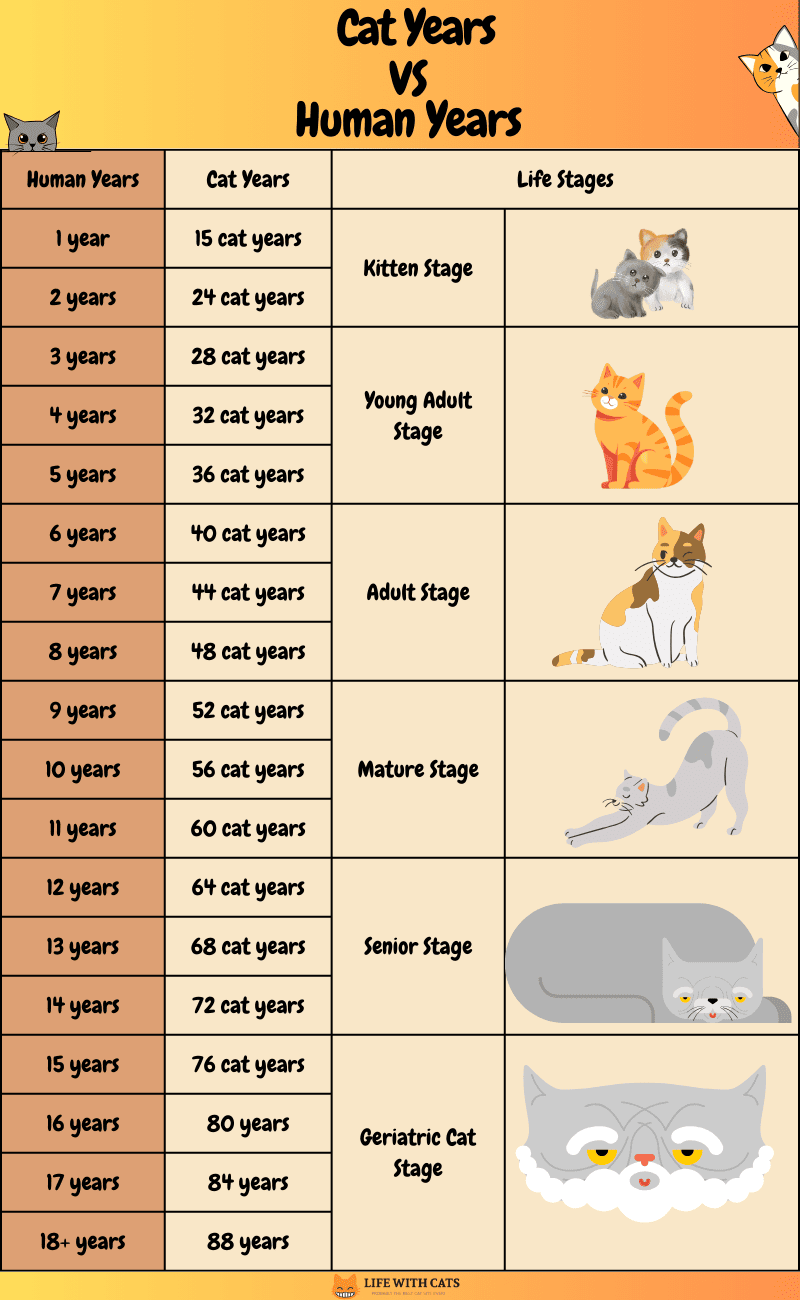
Cat Years Calculator
Use this cat years calculator to work out how old your cat is in human terms!
Enter your cat’s age (from 1 to 25) in this calculator to see the equivalent age in human years.
FAQs
In this part of our guide, we answer a few of the most commonly asked questions about cat years to human years conversion.
Why Is The Traditional 1 Cat Year = 7 Human Years Inaccurate?
The traditional idea that one cat year equals seven human years is inaccurate, mostly because cats mature at a different rate than humans.
For example, in their first year, cats develop rapidly, reaching the equivalent of human teens. By their second year, cats are comparable to humans in their mid-twenties. After that, the aging process slows down, with each subsequent cat year equivalent to around four human years.
That means a five-year-old cat isn’t 35 in “human years,” as the 7:1 ratio would suggest, but rather closer to a human in their early thirties.
Do All Cat Breeds Age At The Same Rate?
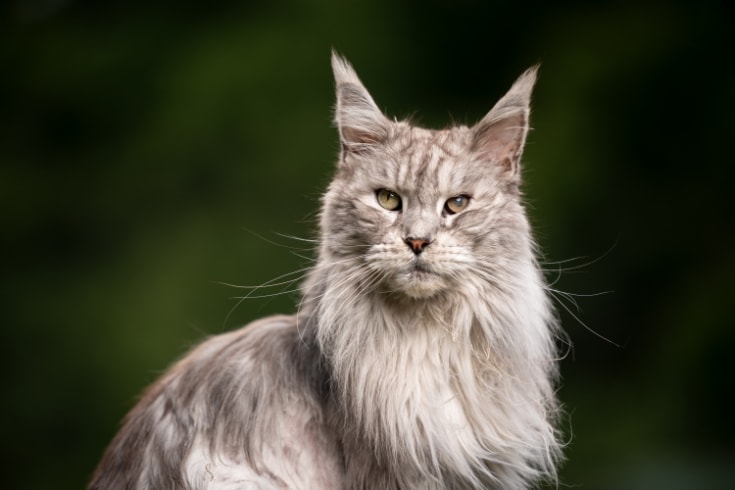
No, not all cat breeds age at the same rate.
While most cats grow quickest in their first two years, followed by a slower aging process, some breeds live much longer.
For example, larger breeds like the Maine Coon tend to live slightly longer than smaller breeds. In addition, purebred cats can have specific genetic health issues that can affect their overall lifespan and aging process.
Do Neutered/Spayed Cats Live Longer?
Yes, according to veterinary studies, spayed female cats live 39% longer and neutered male cats live 62% longer. The reduced lifespan of non-desexed pets can, to some extent, be blamed on their increased urge to roam.
Are Indoor Cats Likely To Live Longer Than Outdoor Cats?
Yes, indoor cats generally live longer than outdoor cats.
Indoor cats live in a safe, controlled environment where they are not exposed to harsh weather conditions and predators, while outdoor cats run the risk of crossing busy roads, encounters with wildlife, and are more likely to pick up diseases from strays.
How Can I Ensure A Healthy And Long Life For My Cat?
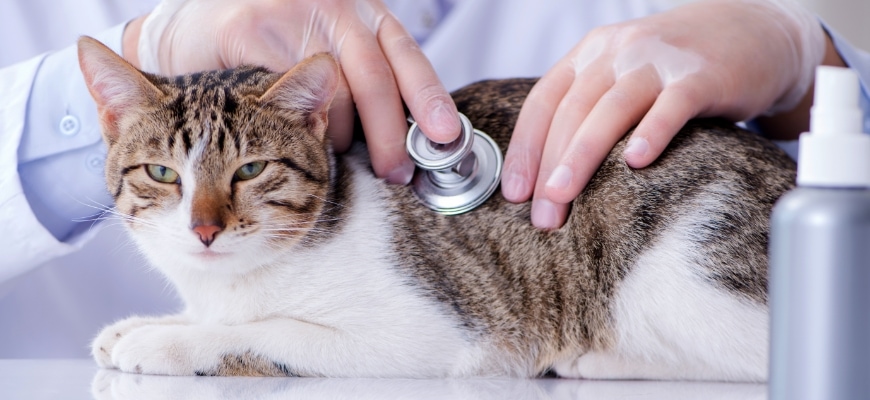
You can ensure a healthy, long life for your cat by providing her with regular veterinary check-ups to catch and treat serious illnesses before they become life-threatening. In addition, you should ensure your cat is vaccinated against common diseases and has regular parasite-prevention treatments.
Feed your cat a well-balanced, nutritious diet in the correct quantities so that your cat doesn’t get overweight, and put in place a regular daily exercise and training regimen to keep her physically and mentally fit.
What’s The Oldest Recorded Age For A Domestic Cat?
According to the Guinness Book of World Records, the oldest cat to ever live was Creme Puff, a cat from Texas who lived to be 38 years and three days old!
Conclusion
The average lifespan for a cat is between 13 and 14 years old, although some cats live for much longer than that, typically up to 18 or 19 years of age, and certain cat breeds typically live longer than others. A veterinary study showed that indoor cats tend to live longer than outdoor cats and desexed cats also enjoy a longer lifespan.
The traditional estimated cat years to human years was 7:1. However, recent research has changed that view since we now know that the feline aging process slows down after two years.
You can give your cat the best chance of a long life by providing her with an enriched, stress-free environment, a healthy diet, and appropriate veterinary attention.